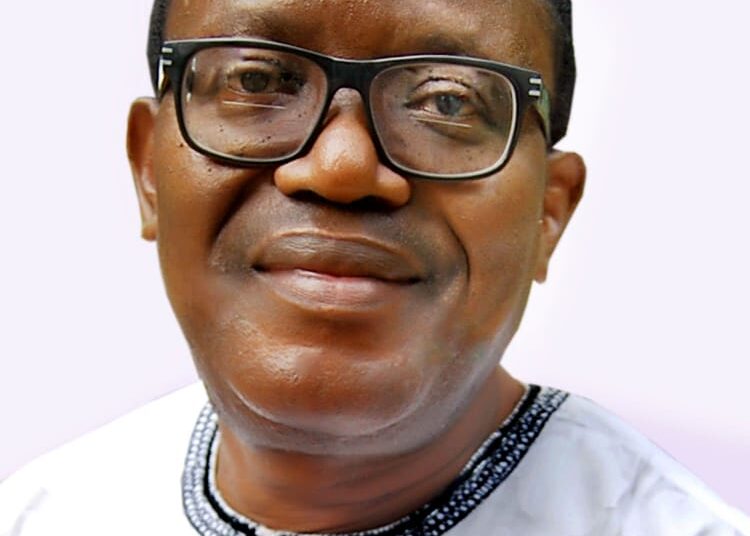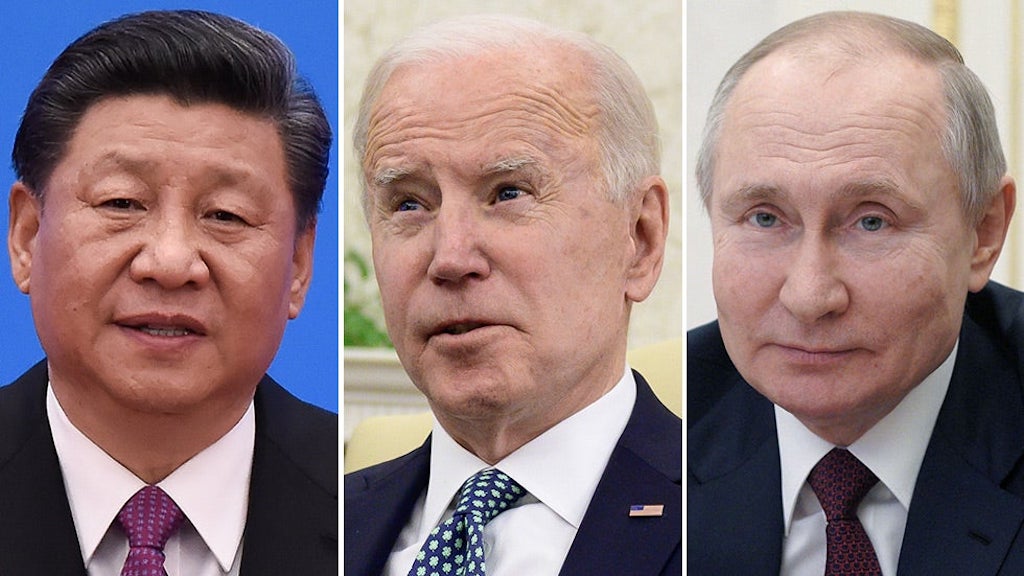www.aljazeerah.info
Opinion Editorials, July 2023
Archives
Mission & Name
Conflict Terminology
Editorials
Gaza Holocaust
Gulf War
Isdood
Islam
News
News Photos
Opinion Editorials
US Foreign Policy (Dr. El-Najjar's Articles)
www.aljazeerah.info
Xi, Biden, and Putin Are Big Men in a Small World By Owei Lakemfa Premium Times, Nigeria, July 4, 2023 |
 |
 |
|
| Presidents Xi, Biden, and Putin |
Xi, Biden and Putin: Big men in a small world
Perhaps the real dictator is Biden who, with a hawkish foreign policy built on a war culture and industry, is wrecking peace moves and pushing non-diplomatic solutions in a conflict-weary world.
Doubtlessly, Presidents Xi, Biden, and Putin are big men in our small world, but the world is big enough for all countries to fly without bumping into themselves. We need courage to insist on this and tell the big men that we prefer a world at peace than one perpetually on war footing.
The tension which has enveloped the world for over a century, has been exacerbated by the multinational war in Ukraine, so any candle light for peace gives a ray of hope. That was what the United States (US) and China offered the world when, on 19 June, their officials ended a two-day meeting in Beijing, with the announcement of the drilling of a communication channel, and planned bilateral agreements.
However, the next day, President Joe Biden, ‘the leader of the free world’, deliberately shot a missile at the peace move, and 24 hours later, China responded in similar measure. With that, the peace candle just lit by the two largest armies and economies in the world, was blown out. Predictably, Russian President Vladimir Putin lampooned Biden, and surprisingly New Zealand, a trusted ally of the US, also lashed out against Biden.
This month’s talks were the first high level meeting between the two countries in the last five years. They seemed doomed from inception, as the previously scheduled one in February failed to hold. The US had accused China of sending a surveillance air balloon over Alaska, with China responding that the Americans were merely being hysterical.
For the June talks, the US had picked its 71st Secretary of State, 61-year-old Anthony John Blinken, to lead its delegation to China. He had served as Deputy National Security Advisor and Deputy Secretary of State in the Obama administration.
In the two days, the US delegation met with President Xi Jinping, director of the Chinese Communist Party’s Central Foreign Affairs Office, Wang Yi, and Foreign Minister Qin Gang.
The US-China tension had risen significantly on 2 August, 2022, when Nancy Pelosi, as the speaker of the US House of Representatives, led five other American legislators on a pointedly provocative visit to Taiwan, China’s breakaway territory.
Pelosi had told the world that: “The visit should be seen as an unequivocal statement that America stands with Taiwan, our democratic partner, as it defends itself and its freedom.” Taiwanese fighter jets had escorted her and China had responded by launching military exercises around Taiwan, in addition to cancelling eight official military programmes with the US.
But at the Beijing talks, the US assured China that “there has been no change to the US one China policy, based on the Taiwan Relations Act”.
In analysing the outcome, it is difficult to guess what President Biden objected to, but he clearly was not happy with the outcome of Blinken’s trip; perhaps the events were happening too fast for him. Whatever his reasons, he went all out the next day to shoot down the peace process.
Blinken’s Spokesperson, Matthew Miller, said both countries “had candid, substantive, and constructive discussions” and emphasised the importance of maintaining open channels to reduce the risk of conflict.
They agreed to establish joint Work Groups, strengthen people-to-people exchanges and increase the number of direct flights between both countries.
The US statement said both countries agreed to work together “on shared transnational challenges, such as climate change, global macroeconomic stability, food security, public health, and counter-narcotics”. In agreeing to follow-on senior engagements in Washington, the Americans invited Foreign Minister Qin to Washington to continue the discussions.
In analysing the outcome, it is difficult to guess what President Biden objected to, but he clearly was not happy with the outcome of Blinken’s trip; perhaps the events were happening too fast for him. Whatever his reasons, he went all out the next day to shoot down the peace process.
Biden, at a fundraiser in California, made fun of China for allegedly passing through “real economic difficulties”. He presented no facts to back up his claims. Then he launched the verbal missile on China: “The reason why Xi Jinping got very upset in terms of when I shot that balloon down with two box cars full of spy equipment is he didn’t know it was there. No, I’m serious. That was the great embarrassment for dictators, when they didn’t know what happened.”
China Foreign Ministry spokesperson Mao Ning, next day, described Biden’s attacks as “extremely absurd and irresponsible”.
The day after China’s response, Biden doubled down. At a joint press conference with Indian Prime Minister Narendra Modi, he said his verbal attacks against China are “just not something I’m going to change very much”.
Given what may well be an apparition revolt by the Wagner Group, the US has apparently reviewed its claims that Putin is a dictator, while maintaining Xi is one. Perhaps the real dictator is Biden who, with a hawkish foreign policy built on a war culture and industry, is wrecking peace moves and pushing non-diplomatic solutions in a conflict-weary world.
Apparently aware that his comments had wrecked the peace talks, the American President added: “I expect to be meeting with President Xi sometime in the future, near-term. And I don’t think it’s had any real consequence.”
Poor Blinken, who saw his best diplomatic efforts wrecked within minutes by his boss, had no choice but to concur. On 25 June, he told the media: “The President speaks clearly, he speaks candidly. I’ve worked with him for more than 20 years and he speaks for all of us.”
However, New Zealand Prime Minister Chris Hipkins, unlike Blinken, had no inhibitions. He told Biden that Xi is no dictator: “No, and the form of government that China has is a matter for the Chinese people.” He added: “If they (the Chinese) wanted to change their system of government, then that would be a matter for them.” Hipkins comments came a week before his on-going visit to China in which both countries are discussing exports, education and tourism.
In 2022, Biden had described Russian President Vladimir Putin as “a murderous dictator, a pure thug who is waging an immoral war against the people of Ukraine.” Last week, Russia pointed out that there is a disconnect between the outcome of the Blinken visit to Beijing and Biden labelling Xi a dictator. Kremlin spokesman, Dmitry Peskov, said while Blinken’s visit had “various conciliatory statements”, Biden’s follow-up comments are “incomprehensible”. Moscow said: “These are very contradictory manifestations of US foreign policy, which speak of a large element of unpredictability.” The Russian presidency added: “However, that’s their business. We have our own bad relations with the United States of America and our very good relations with the Peoples Republic of China.”
Ironically, the US that has consistently labelled Putin a dictator who brooks no opposition, now says the attempted revolt by the Russian mercenary Wagner group shows that Putin is weak. Blinken said: “We’ve seen more cracks emerge in the Russian façade. It is too soon to tell exactly where they go, and when they get there.”
Given what may well be an apparition revolt by the Wagner Group, the US has apparently reviewed its claims that Putin is a dictator, while maintaining Xi is one. Perhaps the real dictator is Biden who, with a hawkish foreign policy built on a war culture and industry, is wrecking peace moves and pushing non-diplomatic solutions in a conflict-weary world.
Doubtlessly, Presidents Xi, Biden, and Putin are big men in our small world, but the world is big enough for all countries to fly without bumping into themselves. We need courage to insist on this and tell the big man that we prefer a world at peace than one perpetually on war footing.
Owei Lakemfa, a former secretary general of African workers, is a human rights activist, journalist and author.
Xi, Biden and Putin: Big men in a small world, By Owei Lakemfa (premiumtimesng.com)
***
|
|
|
|
||
|
||||||


